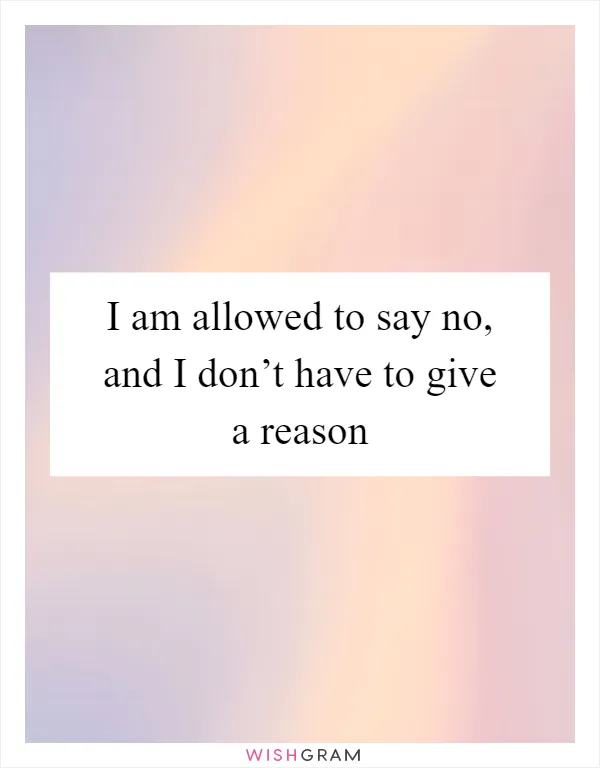I am allowed to say no, and I don’t have to give a reason
Self-care affirmations are powerful statements that can help us establish healthy boundaries and prioritize our well-being. One important aspect of self-care is recognizing that we have the right to say no without feeling obligated to provide a reason. It is crucial to understand that our needs and desires are valid, and we are not obliged to justify them to others.
Saying no can be challenging, especially when we fear disappointing or upsetting others. However, it is essential to remember that our mental and emotional well-being should always come first. By asserting our right to say no, we are setting boundaries that protect our energy and preserve our mental health.
When we say no without providing a reason, we are asserting our autonomy and reinforcing our self-worth. We are reminding ourselves that our choices and decisions are valid, regardless of others' opinions or expectations. It is empowering to recognize that we have the freedom to prioritize our own needs and desires without feeling guilty or selfish.
By embracing the affirmation "I am allowed to say no, and I don't have to give a reason," we are reclaiming our power and taking control of our lives. We are acknowledging that our time and energy are valuable resources that should be invested wisely. Saying no without explanation allows us to protect our boundaries and avoid overextending ourselves, which can lead to burnout and resentment.
Practicing this affirmation can be transformative for our self-esteem and overall well-being. It helps us cultivate self-respect and assertiveness, enabling us to make choices that align with our values and goals. Saying no without justification also encourages others to respect our boundaries and understand that our decisions are not up for negotiation.
Remember, it is perfectly acceptable to decline invitations, requests, or obligations without providing a detailed explanation. We are not obligated to justify our choices or convince others of their validity. Our feelings and needs are valid in and of themselves, and we have the right to honor them without feeling guilty or ashamed.
